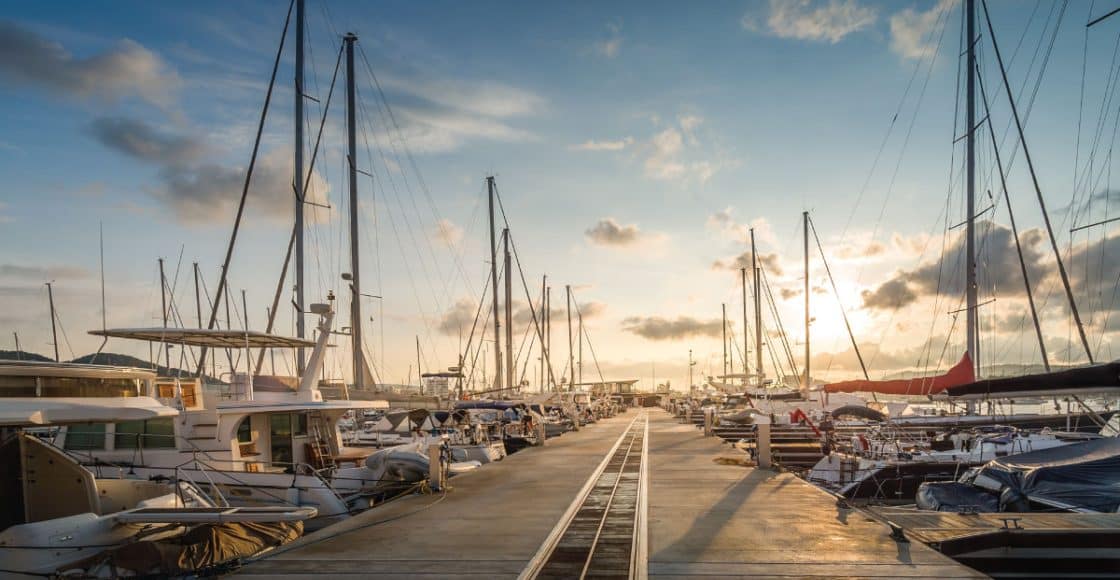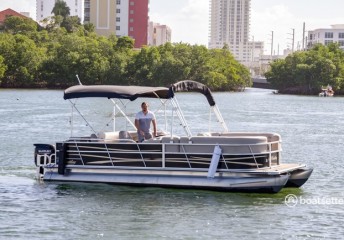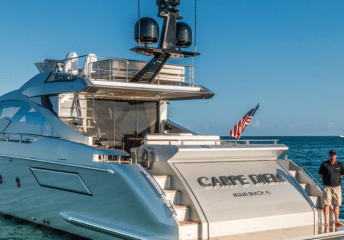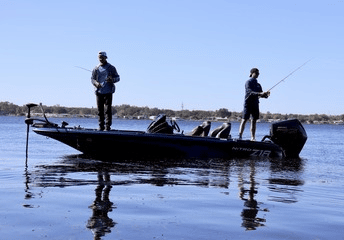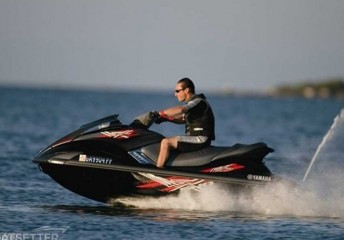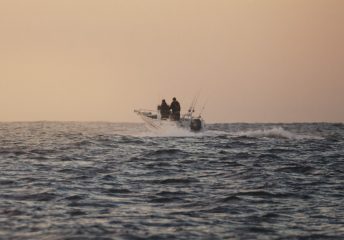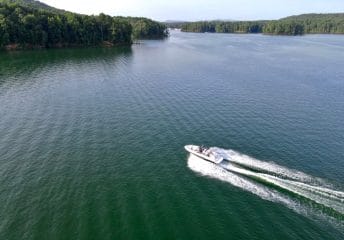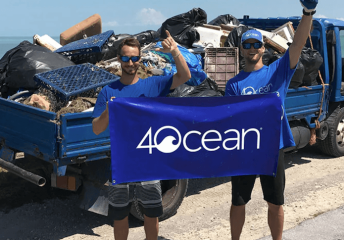Marina Fees & Boat Slip Pricing Explained
Last Updated on May 10, 2023 by Boatsetter Team
Buying a boat is only part of the investment when it comes to enjoying life on the water. Just like a car, RV, or house, boat owners, too, have expenses that can be offset by renting out their vessels. One of the biggest questions boaters ask is how much it costs to keep a boat in a marina. Marina fees, boat slips, and all. We go over it all in this post: Marina Fees & Boat Slip Pricing Explained:
- Mooring options
- Quick access to our waterways
- Boat slip pricing on a sliding scale
- Boat insurance
List your boat & start earning an avg. of $20K yearly with Boatsetter
Mooring options: Trailering, boat slips, & buoys
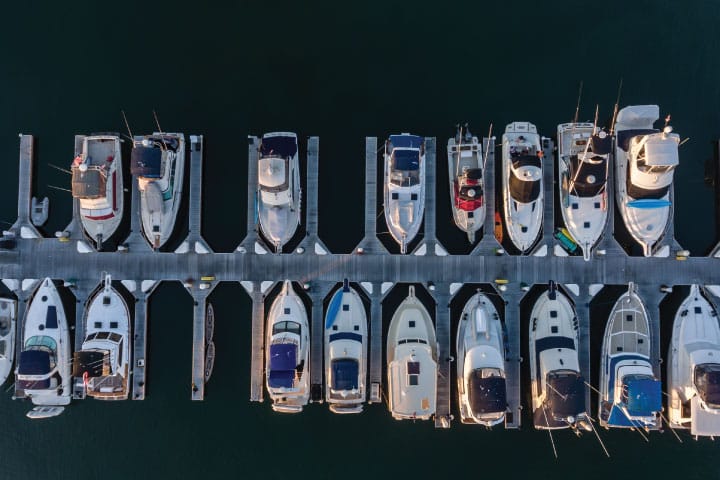
While smaller boats can be kept on a trailer to cut ownership costs and make it easy to move the boat to different locations to fish, ski, snorkel, or enjoy a day in the sun, larger boats are kept in the water by renting space in a marina known as a “boat slip.”
Boat slips are not to be confused with a “boat dock,” which is open on three sides, allowing you to dock your boat along a strip of land rather than an enclosed slip.
There are other options for both boat classes as well. Some boats can be kept tied to a “mooring buoy,” a big, sunken weight that acts as an anchor, typically provided by the marina.
Smaller boats can also be kept in a marina’s “rack storage system.” It is just as it sounds, large metal racks provide spaces for boats to be stored either inside or out, kind of like boat “condos.” This is also known as the “launch on command” service.
The boat is kept in the rack until the owner wants to use it. Then, the marina picks the boat up from the rack with a large forklift and sets it in the water, where the owner takes it out for the day.
Each storage method comes with different costs, and all have their pros and cons.
Pro Tip: Another way to offset boat ownership costs is by renting it out on your non-boating days. Platforms like Boatsetter will get you connected to vetted renters and facilitate things like communications. Boatsetter boat owners make an average of $20,000 annually by renting out their boat(s). List your boat here.
Quick access to our waterways is everything
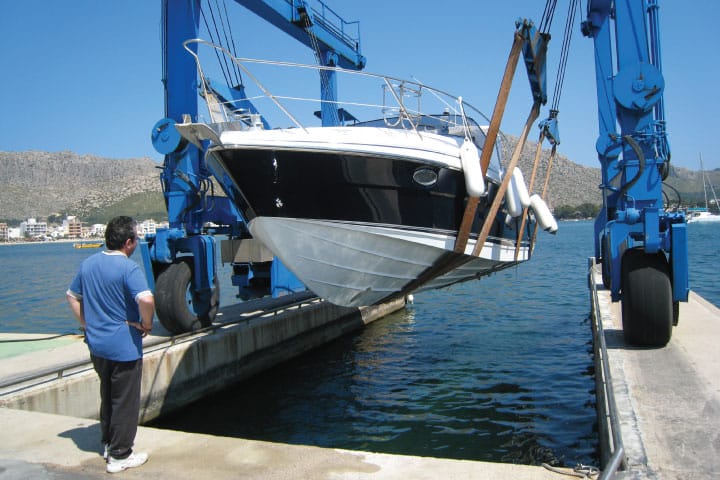
While trailering a boat reduces costs, it can also reduce spontaneity by making it harder to go for a ride without planning and preparation. Rack storage costs more than trailering a boat but makes launch and recovery easier for the owner because the marina does all the work.
One thing to remember about using the rack storage system is that it requires the owner to make arrangements in advance and during working hours to have the boat ready and waiting.
Any sized boat can be kept in a slip where it is easy to access, can be used at any time of the day or night, and only requires the owner to plan what kind of drinks, snacks, and music to enjoy while out on the water with friends and family.
For owners who slip their boats, going for a cruise can be as easy as walking down the dock, firing up the engines, and going for a ride. However, boat slip prices can be one of the biggest expenses that boat owners face. So, how much does it cost to rent a boat slip?
Boat slip pricing on a sliding scale
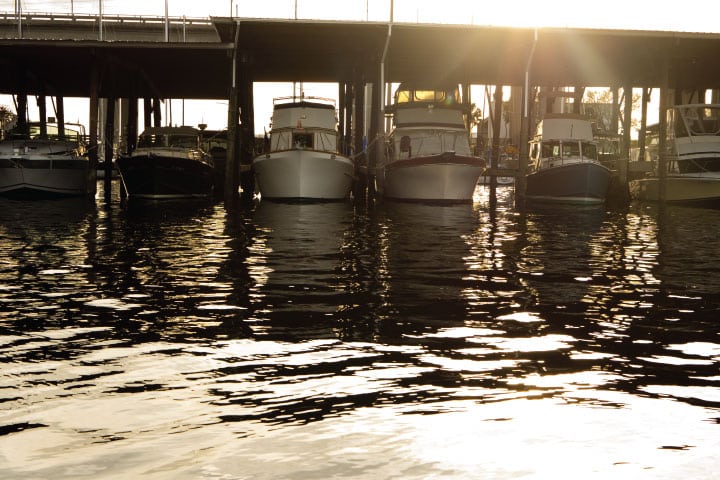
Marina prices for all types of boat storage can vary from one geographic location to another but are usually charged according to the length of the boat or by the length of the slip, or the storage space itself.
Although there can be other variables as well, rack storage costs for a 25-foot boat can run around $2500-$3000 for the season. For the same 25-foot boat, a slip in a marina can cost $3000-$4000 for the summer season.
In warmer climates like South Florida, many marinas offer year-round rates. Some Florida marinas charge by boat’s linear foot for each month, so the same 25-foot boat slip can cost $18 to $22 per foot per month.
In colder climates, boat owners must also cover the cost of either outside storage, which requires that the boat is winterized to protect engines and water systems from the cold, or inside heated storage, which is more expensive but does not require that the vessel is winterized.
Winter storage costs can often be the same as the slip costs or more for indoor heated storage.
There are other charges boaters need to consider. Marinas around the country have begun requiring boat owners to carry Protection and Indemnity insurance. or P&I, on their vessel to protect the marina from the costs associated with collisions, damage, sinking, and even environmental impacts from oil and fuel.
READ MORE: Boat Ownership 101: Common Mistakes & How to Avoid Them
Keeping it safe: You and your boat
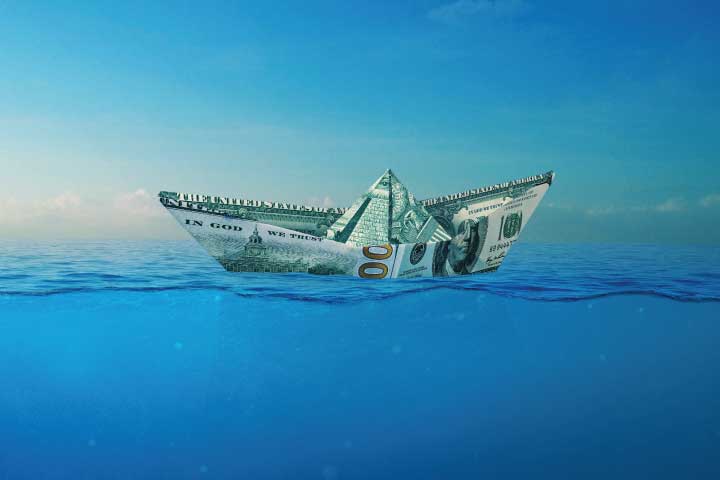
The costs for “Protection and Indemnity Insurance” (or P&I Insurance) can also vary from vessel to vessel, so the best option is to call your insurance provider for a quote.
P&I Insurance is a liability insurance specifically designed to address the unique needs of the marine industry. You can learn more about insurance for your boat rental in this post.
Pro Tip: Boatsetter is currently the only boat rental marketplace online in partnership with GEICO Marine Insurance providing boat owners with an exclusive policy for their boat rental business. Learn more about Boatsetter’s Peer-to-Peer Boat Rental Insurance Policy.
Like any sport, hobby, or lifestyle, boating has its associated costs but the trade-off is worth every penny. Just like a house, your boat needs a place to park, maintenance, and insurance. However, turning the key in your front door won’t start the engine so you can go for a cruise in the sun.
About us
Boatsetter is a unique boat-sharing platform that gives everyone — whether you own a boat or you’re just renting — the chance to experience life on the water. You can list a boat, book a boat, or make money as a captain.
List. Rent. Earn— Only at Boatsetter

Chuck Warren fell in love with boats at 9 years old while helping to restore his grandfather’s 1939 44-foot Elco cruiser. A lifelong boater, Chuck has experience operating large and small vessels on the waters of the Atlantic, Gulf of Mexico, Caribbean, and the Great Lakes.
During his 35-year marine industry career, Chuck has been the driver for several offshore powerboat racing teams, the chief engineer aboard a Caribbean research and salvage vessel, captain of a Florida Keys sunset cruise, and more.
Today, Chuck is a boating industry writer, copywriter, and captain who lives on his 40-foot boat in the summer when he isn’t delivering vessels around the Great Lakes or teaching new boaters to drive. Winters are split between the West Michigan lakeshore and wherever his travels take him.
